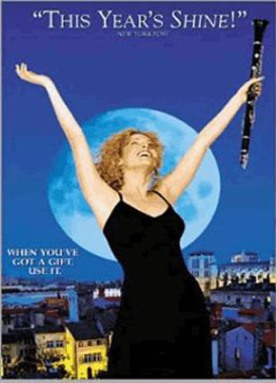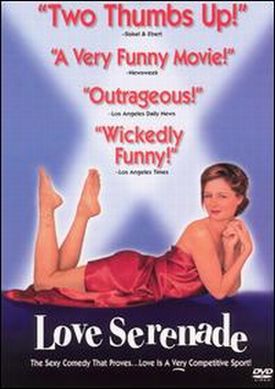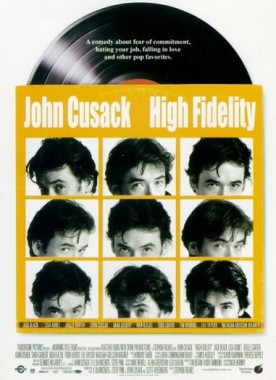Beyond Silence
Beyond Silence, directed by Caroline Link, is one of those tremendously worthy films that deal with handicap and that one had better not say anything bad about because of their great sensitivity and caring. But they illustrate a saying of George Lucas, the director of Star Wars etc, that “emotionally involving the audience is easy. Anybody can do it blindfolded. Get a little kitten and have some guy wring its neck.” Here the kitten is two deaf parents, Martin (Howie Seago) and Kai (Emmanuelle Laborit) and their darling little girl called Lara (Tatjana Trieb), who must act as their ears, interpreting the world for them in the sign language that comes to symbolize their family bond against the unfeeling and often hostile world.
This charming family portrait is later complicated by the discovery of Lara’s musical talent and her flirtation with disloyalty over its development—partly because music itself is a kind of insult to the deaf and partly because it draws Lara closer to her beautiful but brittle Aunt Clarissa (Sibylle Canonica), a musician whose relations with her deaf brother, Lara’s father, have always been strained at best. Martin is jealous of Clarissa and her music, which keeps her close to their emotionally remote but musical father, while Clarissa resents Martin for his closeness to their mother. When Clarissa gives Lara her old clarinet and even cuts her hair to look more like her own, even Lara is aware of the subtext of hostility. “Now you look like her,” her father says coldly when she turns up, in tears, with short hair.
I think that this is the best part of the film, and there are many wonderful moments when roles are reversed and Lara must in effect act as her parents’ parent. Most memorable is the scene in which she teaches her mother how to ride a bicycle. Also, her little-girl naughtiness is magnified to many times its normal dimensions when she acts as translator but deliberately does not give faithful translations. For its first half, the film plays the little family’s closeness off against the larger family’s tensions in interesting and often moving ways. But then we skip forward ten years and little Lara, now played by Sylvie Testud, is eighteen and going through an excessively familiar coming-of-age. Although Miss Testud is a beautiful young woman, the translation of her family troubles, and their ultimate resolution, into teenager versus parent terms comes as rather a disappointment after such a powerful beginning.
We know that the schmaltz is coming when the teenage Lara is introduced to klezmer music by an old musician who compares it to Chagall’s painting. Chagall, he says, “knows that el mundo is music.” Later she tells the panel interviewing her for her admission exam to the conservatory that her favorite music is klezmer because it is so “emotional—wild and joyous, but not free inside.” Naturally, the film ends with the audition and the hope of reconciliation, and so one has the feeling that it, rather like the klezmer music it celebrates, is frogmarching one emotionally towards the desired resolution. Who would dare protest or show oneself out of sympathy with the poor deaf people?
Still, though the resemblance to strangling kittens is sometimes uncomfortable, the film is worth seeing, especially for its first half.
Discover more from James Bowman
Subscribe to get the latest posts to your email.








